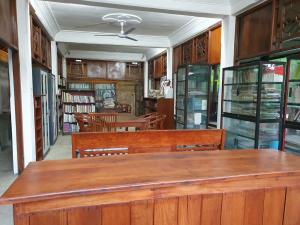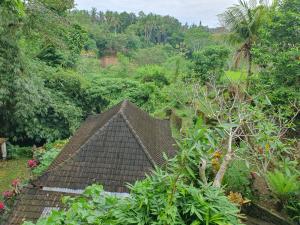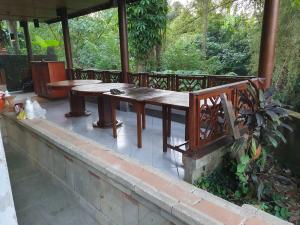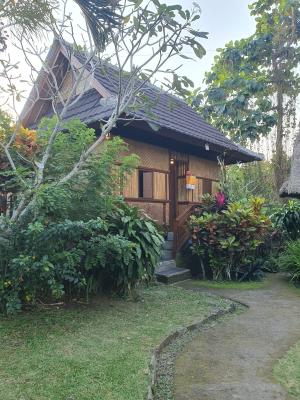Vern Cork Library Project
Breakdown:
- Accommodation and food: 15.00 Euro
- Transportation: 5.00 Euro
- Activities: 5.00 Euro
- Hosting organisation support: 50 Euro
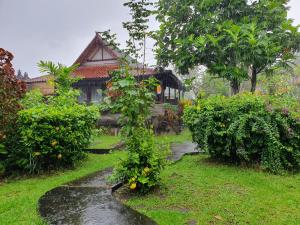
Description: Balinese people are already familiar with foreign tourists who visit the island every year, contributing to the region’s income. However, there are not many adequate facilities to improve literacy skills in this location. The low reading interest of local residents, The project was initiated by Vern Cork, an Australian writer with a long association with the local Balinese Community. The current books to be collated are a collection of three generations of the family of Ibu Dayu’. This library will be used by local residents to hold educational sessions to stimulate creativity and increase reading interest in the younger generation.
Type of Work: Project: Organizing a small community library. To increase reading interest among residents, we collaborate with local communities and volunteers to create a simple library that can be accessed by local residents.
Work: Book Cleaning Arranging books on the bookshelves based on subject categories such as History, Culture, society, Law, politics Running a non-formal education session with local youth and children Creating a digital record of the books Volunteers will write their own story during the project, to leave as a record
Study Theme: Aims: Ensure bookshelves and books are in a sound state for long-term public access Excite local children to the prospect of book learning Arrange a small library for the local community and provide it with a digital catalog Conduct intercultural learning with the local community
Accommodation: Sua Bali Resort, Males & Females will be in separate rooms and will stay in the neighborhood of the host family with the use of a shared toilet and kitchen.
Language: English must be spoken among volunteers. But, you may heard local volunteers will talk with locals in Bahasa Indonesia or Balinese language for certain time.
Requirements: Feel free to bring equipment or educational materials to have fun with local children at your campsite. Sua Bali is a simple resort in the old Balinese style and away from the tourist areas. Volunteers must be prepared for a very simple lifestyle.
Approximate Location: Banjar Medahan, Kemenuh, Kec. Sukawati, Kabupaten Gianyar, Bali Gmap Link: https://maps.app.goo.gl/MVD9cikc7CGkpE689
Notes: Fee: 75 Euros The fees will cover your accommodation, food, local transport during the project, project materials, and management fees. The project is a joint project of IVP Indonesia and IVP Australia
Camp Photographs
